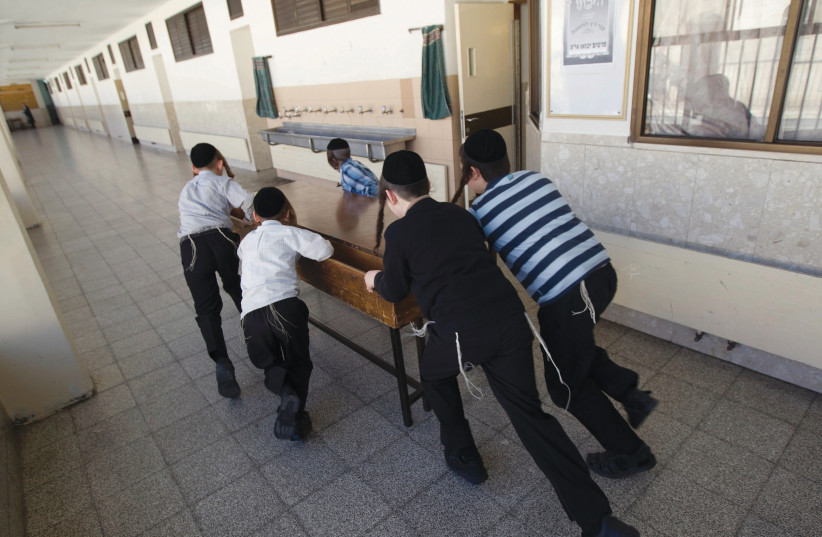Over 60% of Israelis want controversial topics to be discussed in the classroom and believe that such discussion is important and necessary, according to a new poll published by the Israel Democracy Institute (IDI) on Tuesday.
The percentage of Israelis who support such discussion does vary between different sectors, with 64% of Haredim saying they don't believe controversial topics should be discussed, while 61% of religious Jews and 78% of secular Jews support such discussion.
Meanwhile, over 51% of the Arab sector supports discussing controversial topics in the classroom, while 28% do not support such discussion.

Most Israelis want their children to learn in diverse classes
Additionally, the survey found that 67% of Israelis prefer that their children learn in classes with students from other sectors instead of in separate schools.
While 83% of secular Jews are interested in diverse classroom settings, 74% of Haredi Israelis are against such classrooms.
Voters for the Religious Zionist, Likud, Yisrael Beytenu, Balad and Bayit Hayehudi were more likely to prefer separate classrooms than voters for other parties.
The poll also found that 71% of Israeli citizens see democratic values as important to instill in the education system.
Dr. Tammy Hoffman, the director of IDI's Lautman Forum for Education Policy who led the survey, stated "It is important to understand that the fact that the public thinks it is necessary to engage in controversial issues is not enough."
"In order to engage in class in issues that are at the heart of controversy in the Israeli public (relations between religion and state, the status of the court, the treatment of minority groups, governmental corruption, etc.), two additional things are required. First, appropriate training for teachers in everything related to the pedagogy of controversies.
"A classroom teacher is no longer an ordinary citizen, she has the professional responsibility to deal with these issues in a way that does not reflect the discourse on social media, on the street and even, unfortunately, in the Knesset. This training is almost never provided in teacher training institutions. Second, providing systemic and public backing for teachers and trust in them. This is a condition that, unfortunately, is also not met most of the time."
Policy papers dealing with civics education written at the IDI found that each of the social groups in Israel define what is controversial differently, with issues perceived as self-evident in one group seen as a threat to a group's identity by another group.
The papers note that the fact that the center-left and religious Zionist sectors both agreed that controversial issues should be discussed does not mean that teachers in both sectors will engage with such issues in the same way.
On Thursday, the policy papers and the survey will be presented at the 7th Dov Lautman Conference on Educational Policy at Tel Aviv University.
